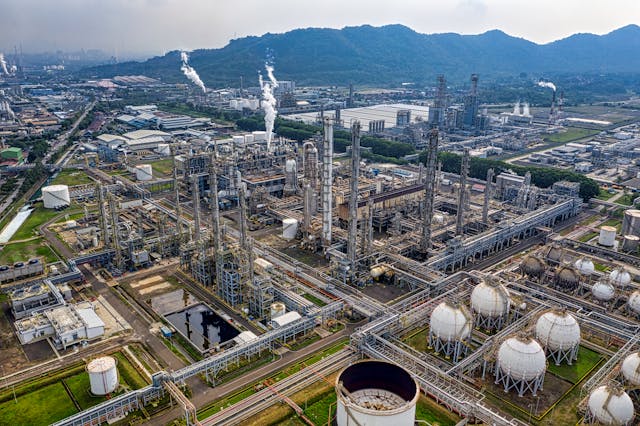
How much oil is left? About 1.5 trillion barrels, which is enough oil for roughly 47 years.
There are several problems with this question. The first problem is that there are probably oil reserves that we don’t know about. The second problem is that oil drilling technology improves. The third is that estimates of how many years of oil there are left are based on current consumption rates of oil, and those can change.
First, let’s look at the remaining quantity, rather than the remaining number of years. How was the estimate of 1.5 trillion barrels reached? This number of barrels is the amount of proven oil that oil producing countries can pull out of the ground using the current infrastructure that they have. There are 98 countries in the world that have oil reserves. Venezuela has 18% of the world’s oil, putting it at the number one oil producing country. The next four countries are Saudi Arabia, Iran, Canada, and Iraq. Russia is number 8 and the US is number 10. All of these 98 countries can pull 1.5 trillion barrels of oil out of the ground, which is the proven oil reserve. However, there is more oil than this and there are technically recoverable oil and gas reserves. It is unknown how much of this there is, but it is called technically recoverable because getting at it is very hard and it would probably cost more than the oil is worth to get it. Some of it is also of low quality, or infused with sulfur, which can damage the drilling equipment. It is technically recoverable, but not worth it at the moment.
So, will 1.5 trillion barrels of oil left only last 50 years? It will at current usage. The whole world uses approximately 35 billion barrels of oil a year, which works out to just over 4 barrels a person. One barrel has 159 liters. Obviously, people in richer countries use more oil than people in poorer countries. At this rate, all of the oil will be gone in less than 50 years. Peak demand for oil will be reached in 2028 and reserves will run down from there.
There are several problems when we try to work out how much oil is left. The first problem is the calculation is based on the current oil sources we have. Over time more oil has been found, so it makes sense that even more will be found. We haven’t searched everywhere on the planet and most of our planet is underwater. It makes sense that there are still vast undiscovered sources of oil.
Second is the problem that the calculation was based on current drilling infrastructure. This doesn’t work because oil drilling technology is improving year by year. It didn’t use to be possible to drill at the bottom of the oceans, but now the deepest oil drills can reach the bottom of the sea and land-based drills can go very deep. There are also improving ways to get the oil that is technically recoverable. Shale oil has become a huge source of oil recently. It is hard to get, but the oil companies see it as viable.
The third, and probably largest problem, is that the calculation is based on current consumption levels and those are changing. Several things are going to change how much oil we use. Firstly, technology is becoming far more advanced and more efficient with it. Less oil is required to make things or power things. However, on the other hand, we are using far more items made of plastic, which comes from oil. Secondly, more of our power is coming from renewable energy and we are becoming far more aware of the damage oil is doing to our planet. As climate change worsens and it becomes impossible for the oil companies to keep their conspiracies going, people will slowly stop using oil, turning to renewable power sources. Thirdly, as oil runs out, the price will get higher, and people will naturally turn to renewable energies, which will be cheaper. Currently cheap plastic goods will become expensive, and we will have no choice but to find alternatives. For all of these reasons and more, our demand for oil will peak in 2028 and then slowly start to decline. It is likely that we will never run out of oil because we will stop using it long before it runs out. I am a slave to oil. I have many products that rely on oil-based power, and I use a lot of plastic. Hopefully, I will be able to make the switch to a non-oil-based life in the next decade or so. And this is what I learned today.
Photo by Tom Fisk: https://www.pexels.com/photo/panoramic-view-of-oil-refinery-6767962/
Sources
https://www.worldometers.info/oil/oil-reserves-by-country
https://www.eia.gov/energyexplained/oil-and-petroleum-products/where-our-oil-comes-from.php
https://www.theworldcounts.com/challenges/climate-change/energy/the-end-of-oil
https://www.worldometers.info/oil
https://science.howstuffworks.com/environmental/energy/run-out-of-oil.htm
https://interestingengineering.com/science/we-will-never-run-out-of-oil
https://www.usgs.gov/faqs/what-are-technically-recoverable-oil-and-gas-resources
https://www.statista.com/statistics/479685/global-oil-wells-by-depth

[…] in holds were invented and the system changed. The advantages of pipelines over transporting the oil in barrels became clear and towards the end of the 19th century there were far more oil pipelines. […]
[…] so many ships. The US made a lot of steel, but scrap metal was also heavily used as well. The oil to power the ships was also a resource that the US had in plenty. Lack of resources is one of the […]